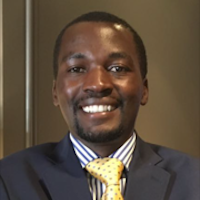Africa's Hopeful Future: A Look at Tomorrow’s Opportunities and Challenges
The promise of Africa’s future rests on its large number of young people. A new generation of African leaders and innovators comments on the hope this presents amidst persistent realities.

When looking at Africa’s future, experts often cite the continent’s large, growing young population as an asset. For one thing, half the continent is under the age of 20 and all 10 of the world’s youngest countries are in Africa. These statistics represent a powerful workforce for the next several decades. Similarly, the “demographic dividend” suggests a pool of future leaders, from local communities to the national level.
With this population in mind, The Catalyst asked a number of Africans from different parts of the continent to answer these two questions: What does Africa’s young leadership mean for the continent’s future? And what stands in its way?
Below are their answers, which touch on issues from better education to health care to leadership development. The responses are hopeful about the future and direct about the challenges.
The Essays

Founder and CEO, soleRebels
“By definition youth brings fresh ideas to the table. In the context of Africa we see that freshness of ideas being manifested in the in the type of entrepreneurial spirit that is taking place across the continent.”
Read full article

Director, Africa Careers Network, African Leadership Academy
“Africa needs a strong network of ethical, entrepreneurial leaders who are willing to commit their energy and passion to serve their communities.”
Read full article

Founder and Owner, Life Creations; 2013 Bush Institute Women’s Initiative Fellow
“The true wealth of Africa lies not only in the rich and diverse natural resources of this continent, but also in the inspiring mosaic of an emerging generation of devoted, intelligent African leaders.
Read full article

Managing Director, NBA Africa; Founder and Chairman, SEED Project
“Current leaders have a responsibility to engage and cultivate Africa’s youth for active leadership.”
Read full article

Global Youth Advocate
“The future of Africa is its youth, and the necessary investments should start now if we are to harness the demographic dividend.”
Read full article

Project Officer and Marketing & Public Relations Coordinator, Our Youth Our Hope; 2015 Women’s Initiative Fellow
“More than 50% of African youth are seeking jobs. They are educated, thoughtful, and aspirational, but that does not make the job market any more forgiving.”
Read full article

Founder, Nhaka Foundation
“Africa’s young, emerging leadership is made up of people who have a passion and vision for the continent. Harnessed well, they will ensure each African country benefits from an array of human capital that can take the continent forward.”
Read full article

National Coordinator for Cancer Prevention, Zambia’s Ministry of Health
“Young African leadership brings more than just political emancipation. Before us lies a challenge to finally implement the many solutions we have talked about and indeed written about.”
Read full article

Country Program Manager, Pink Ribbon Red Ribbon
“Africa is the next frontier for development, technologic advancement, and consumer marketing.”
Read full article

Country Director, Drew Cares International
“Political leaders should design youth-centered policies. And they need to put in place infrastructure, as well as peace accords and trade partnerships, that allow Africa’s young people to reach their full potentials as adults.”
Read full article
The Catalyst believes that ideas matter. We aim to stimulate debate on the most important issues of the day, featuring a range of arguments that are constructive, high-minded, and share our core values of freedom, opportunity, accountability, and compassion. To that end, we seek out ideas that may challenge us, and the authors’ views presented here are their own; The Catalyst does not endorse any particular policy, politician, or party.
-
Previous Article Africa Rising: The Change that Should Happen A Conversation with Madame Monica Geingos, First Lady of the Republic of Namibia
-
Next Article Breaking Down Silos: The Leadership of African First Ladies An Essay by Natalie Gonnella-Platts, Deputy Director, Women's Initiative at the George W. Bush Institute
